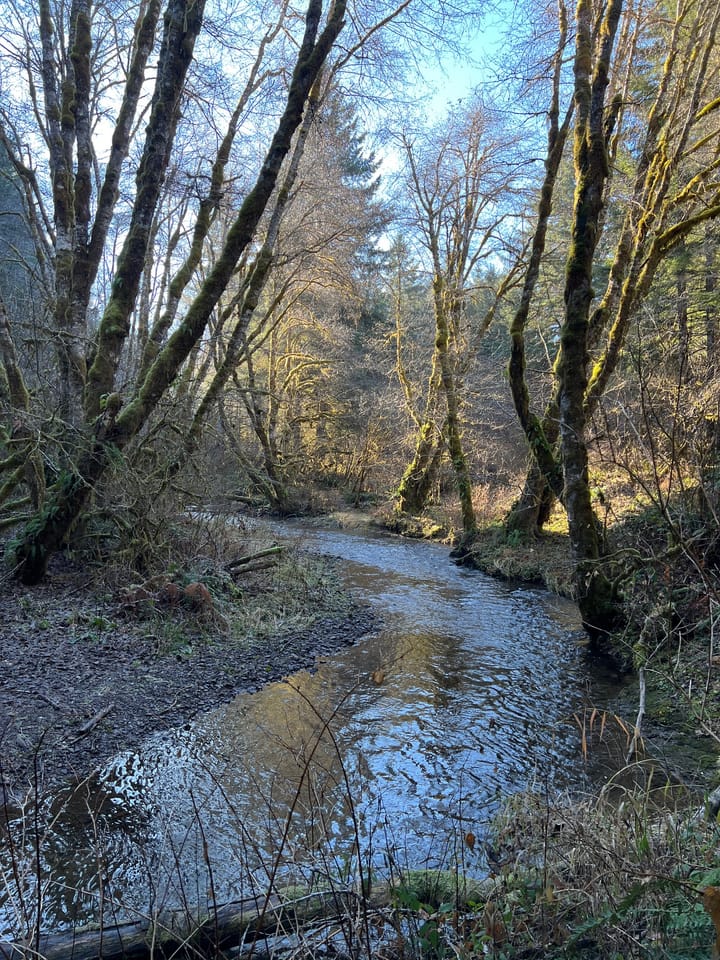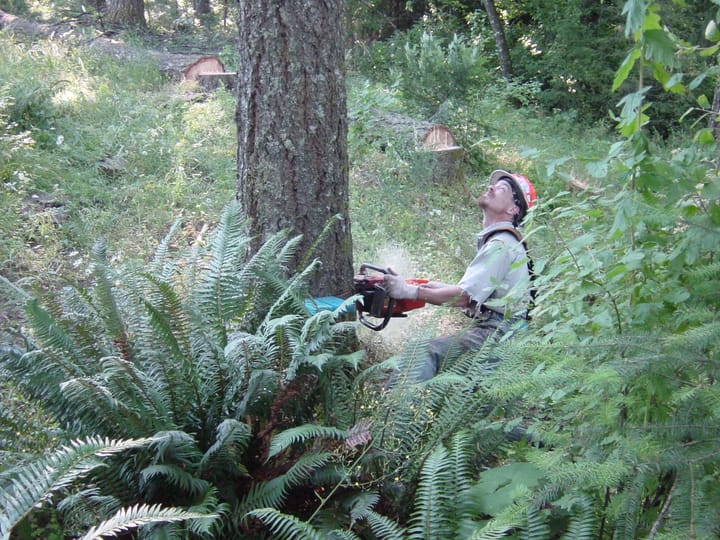Oregonian Op-Ed - January 8th, 2020

Our forests' future depends on our working together
For how many decades have Oregonians opened these pages and read of citizens of Oregon in conflict over forest-related issues? Debate over our proper relationships to forests is not only inevitable but also, when handled well, healthy. But today there is something different about the nature, form and tenor of these tensions and conflicts; because they are an increasing threat to our future, they deserve our attention and action. These conflicts are different in three significant ways:
1) The conflicts are more intense and numerous than ever before. Whether it is future of the Elliott State Forest, the workings of the Department of Forestry, appointments to the Board of Forestry, state forest litigation, Endangered Species Act litigation and pending listings, initiatives filed to modernize the state’s Forest Practices Act, forest implications of pending climate legislation, or federal forest policy, at every turn we run into another dimension of Oregonians in conflict over our future relationships with forests.
2) These conflicts become increasingly complex and urgent due to multiple, related challenges, including climate, water stresses, wildfire, and ecological unraveling.
3) Just when we need to count on democratic processes and functional government to help us resolve these issues, our state and federal governments seem least capable of doing what we rely on them to do – develop common ground on which solutions can be built. Two consequence of this failure are that forest-related struggles shift to their most destructive forms – litigation, initiatives, and protests, and the functioning of the Department of Forestry becomes nearly impossible.
As a multigenerational forest and sawmill owner I see that we’re called to work together to take action to address these problems. We can and must take action to create a better path; these six steps will take us in the right direction:
1. It is time to acknowledge that the forest-related conflicts listed above are symptoms and subsets of a culture wrestling with a pair of fundamental questions – “What is a forest for?” and “How will we build enough common ground to allow us to move beyond this dangerously divided situation?”. Whether it is in the board room, court room, voting booth, tree sit stand, or the cab of a log truck circling the capitol honking in protest, the underlying questions are the same.
2. Oregonians must become better informed, more engaged with, and more vocal about our forests and the above questions. To do this we must dig beneath the deliberately deceptive illusions propagated by the tax payer-funded Oregon Forest Resources Institute to better understand the circumstance, issues and choices.
3. We must accept that responsible forest stewardship, public and private, depends on us shifting from seeing and treating forests as commodities from which we have the power to extract cash, irrespective of the consequences to ecological and human communities, toward treating forests as communities within which we, as members, have responsibilities.
4. It is time for us to tell elected and appointed officials that we expect them to become knowledgeable about and take effective leadership on forest issues. As a former member of the Board of Forestry, I see that government will only fairly lead on forest issues once the corrupting power of corporate campaign donations has been removed.
5. We must join in imagining and creating new approaches to forestry that maintain current strengths while addressing significant weaknesses, to create climate smart, water wise, fire adapted forests that support the vitality of rural communities. Many of us have worked for decades to test and show what forests can be for by moving beyond timber-centric models to create economically viable, multi-value forests. Join us. We have many structures, including watershed councils and forest collaboratives, that already help us build powerful bridges to help heal this divided world; we can and must make better use of them.
6. And finally, we must acknowledge that forests have been, are, and will always be central to the heart, soul, and character of this state and its citizens. Responsible, innovative forest stewardship must be a cornerstone of our vision of our shared future. As northwesterners step up to meet the interwoven challenges of climate, water, ecological unraveling, and too little rural opportunity, we should better harness our most unique super power – our forests’ underutilized potential to help meet these challenges.
When we care for Oregon forests with respect and a long term vision, we know that they will care for us. At the same time that we, as a species, are at a critical hinge point in relation to the earth’s climate, Oregonians face the choice of whether we will rise above our differences to find and work together based on common ground to do what must be done (we are called to do?).


